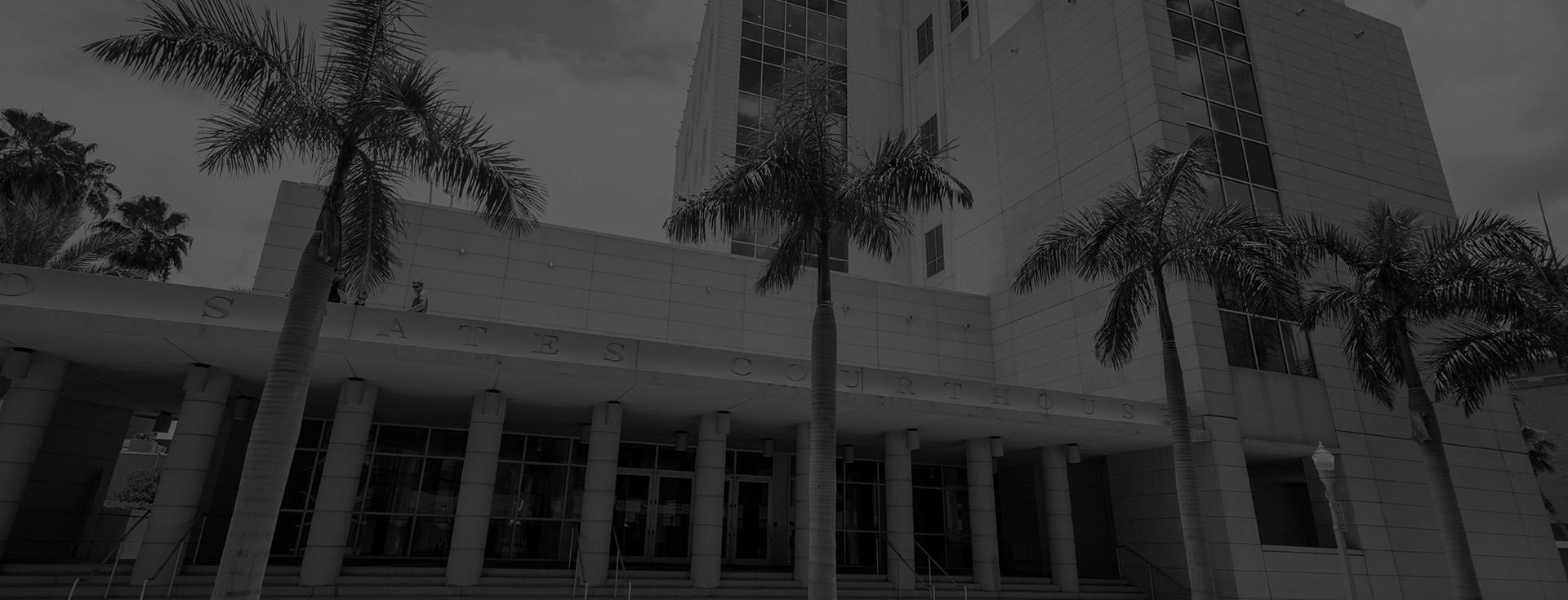
Your Case Deserves Immediate Attention - Call Hubbs Law Today
Miami College Student Defense Attorneys
In addition to jail time, probation, and fines, criminal arrests can have additional consequences if you are a college student. Generally, if a school discovers a student’s arrest, then the school commences student disciplinary proceedings that could result in punishments ranging from a reprimand to expulsion.
Many students don’t realize that they have rights during this process. At Hubbs Law, we not only aggressively defend accusations of a crime in criminal court, we also aggressively defend students that have been accused of misconduct as well.
For every student accused of misconduct, we will thoroughly evaluate you, or your family member’s, case including reviewing reports, witness statements, and evidence. We will conduct our own investigation and help strategize the best defense to protect the student’s reputation.
Hubbs Law can handle student disciplinary proceedings at any school in the State of Florida including the University of Miami, Florida International University, Miami-Dade College, Barry University, St. Thomas University, Nova Southeastern University and more.
Call Hubbs Law today to at 305-570-4802 to schedule your consultation.
Process for Student Disciplinary Proceedings
The process for student disciplinary proceedings can vary from school to school. Generally, the process begins by an individual making a complaint that a student has violated a provision of the student code. The individual making the complaint can be an employee of the school, a student, or an individual with no affiliation with the school.
There are a wide variety of complaints that can be made to a school ranging from allegations of cheating to serious crimes. Every student should take these allegations seriously as they could result in serious sanctions that will be explained below.
The Complaint
After an individual reports alleged student misconduct, generally the school will generate some type of document specifically detailing the misconduct in writing. Generally, the student will be sent this document by e-mail, mail, or in person.
After being notified of the complaint, schools will generally schedule a meeting with a school official to discuss the complaint and advise the student of his or her options under school policy.
The Investigation
If the school believes that the complaint merits an investigation, they may assign an investigator to speak to witnesses and review evidence. During the investigatory process, the investigator will generally also want to speak to the accused student. This is an excellent time to retain an attorney as anything that is said to the investigator could be used against the student especially if there is a pending criminal investigation or criminal case.
Informal Hearing
Most schools have a process for the student’s case to be resolved through an informal hearing. Electing an informal hearing sometimes requires the student to accept responsibility for the student misconduct and gives him or her the opportunity to provide mitigating evidence. Generally, an informal hearing will not require witness testimony and the only determination the hearing official will make will be related to the proper sanction.
Formal Hearing
In contrast, if a student disputes the allegations in the complaint, he or she can set the case for a formal hearing. Depending on the school’s student handbook, the formal hearing can be heard in front of a hearing panel that could be comprised of professors, school officials, or even other students.
At the hearing, witnesses would generally testify to the alleged student misconduct, evidence could be submitted, and the hearing panel would make a decision as to whether the student violated school policy.
Generally, the accused student, or his or her advisor, would have the opportunity to cross-examine witnesses, testify, or produce additional evidence. The decision to testify or produce evidence should be carefully considered especially if there is a pending criminal investigation or criminal case.
Written Determination of Responsibility
After the hearing, the school will generally provide a written determination of responsibility. This written decision will either determine that the student was or was not responsible for violating the student code.
If the University determines that the student violated the student code, then the following disciplinary sanctions could be issued:
- Reprimand – A reprimand is generally a verbal or written admonishment to a student that certain conduct is unacceptable.
- Education Sanctions – Education sanctions can include requirements that a student complete an additional class, write a paper, or complete community service.
- Probation – Probation means that a student will be monitored by the university, may have to report to an advisor, and may have to complete education sanctions to remain in good standing with the University.
- Exclusion from University Housing – A University could prohibit a student from living in student housing for a certain period of time.
- Suspension – A University could suspend a student for a semester, year, or years. During this time, the student would not be able to attend classes or school activities.
- Expulsion – This is the most extreme punishment and would involve the University permanent removing the student from the school.
In determining the appropriate sanction, the school will generally take into account the seriousness of the offense, the student’s prior disciplinary history, and any aggravating or mitigating factors.
Appeal
Students generally have the right to appeal a written determination of responsibility. The procedures of the appeal process will vary from school to school.
- Procedural error that affected the outcome of the matter;
- New evidence that was not reasonably available at the time of the determination regarding responsibility was made that could affect the outcome of the matter;
- A conflict of interest or bias towards or against one of the parties that affected the outcome of the matter; or
- The sanctions are extraordinarily disproportionate to the violation committed.
Process for Title IX Proceedings
Title IX is a federal law that was enacted in 1972 to protect students from sex or gender discrimination in educational programs and activities at institutions that receive federal financial assistance. While the law’s main intent is to prevent discrimination, schools have also used the law to punish rape, sexual assault, sexual harassment, domestic violence, indecent exposure, and revenge porn.
Title IX proceedings are similar to student disciplinary proceedings but could have slightly different procedures and terminology.
The Complaint
After an individual reports conduct (rape, sexual assault, sexual harassment, domestic violence, indecent exposure, revenge porn) that is prohibited by Title IX, the individual will have the opportunity to file a formal complaint with the Title IX coordinator of the school.
After the complainant files the complaint, the Title IX coordinator will review the complaint to determine if there is a sufficient basis to move forward to the next step in the process. Generally, a complaint will be dismissed if the allegation would not violate Title IX even if proven, did not occur in the University’s education program or activity, or did not occur in the United States.
After the formal complaint is filed, the Title IX coordinator should send written notice to the accused of the accusation, the Title IX regulations, and the student’s rights during this process.
The Investigation
If the University moves forward with a Title IX investigation, they will generally appoint an investigator to speak to witnesses, collect evidence, and make an investigatory report. During this time, the investigator will generally want to speak to the accused. Generally, this is an excellent time to hire an attorney as any statements made by the accused to the investigator could be used against them at a Title IX hearing or in a future criminal case.
After concluding the investigation, the investigator will generally make a final report that will give an opinion as to whether the evidence demonstrates that the accused is responsible or not responsible for violating Title IX policy. The school will generally send this report, as well as any evidence referenced in the report, to the student to give the student an opportunity to respond.
The Hearing
If the student disputes the allegations in the complaint and investigative report, he or she has the right set the case for a final hearing. At the hearing, the complainant will be required to prove his or her allegation by a preponderance of the evidence (“more likely than not”). During this time, the complainant will testify, possibly call witnesses to testify, and possibly submit evidence.
The accused then has the opportunity to cross-examine witnesses, testify, and produce additional evidence. The decision to testify or produce evidence should be carefully considered especially if there is a pending criminal investigation or criminal case.
Written Determination of Responsibility
After the hearing, the University will generally provide a written determination of responsibility. This written decision will either determine that the student was or was not responsible for violating Title IX conduct.
If the University determines that the student violated Title IX, the following disciplinary sanctions could be issued:
- Reprimand – A reprimand is generally a verbal or written admonishment to a student that certain conduct is unacceptable.
- Education Sanctions – Education sanctions can include requirements that a student complete an additional class, write a paper, or complete community service.
- Probation – Probation means that a student will be monitored by the university, may have to report to an advisor, and may have to complete education sanctions to remain in good standing with the University.
- Exclusion from University Housing – A University could prohibit a student from living in student housing for a certain period of time.
- Suspension – A University could suspend a student for a semester, year, or years. During this time, the student would not be able to attend classes or school activities.
- Expulsion – This is the most extreme punishment and would involve the University permanent removing the student from the school.
In determining the appropriate sanction, the University will generally take into account the seriousness of the offense, the student’s prior disciplinary history, and any aggravating or mitigating factors.
Appeal
Students have the right to appeal a Title IX decision. However, most appeals are generally limited to the following issues:
- Procedural error that affected the outcome of the matter;
- New evidence that was not reasonably available at the time of the determination regarding responsibility was made that could affect the outcome of the matter;
- A conflict of interest or bias towards or against one of the parties that affected the outcome of the matter; or
- The sanctions are extraordinarily disproportionate to the violation committed.
Do I Need an Attorney for Student Disciplinary or Title IX Proceedings?
Every case is different but generally it is advisable to retain an attorney if one is permitted under your student conduct code. Your education, life, and reputation is too valuable to risk without an experienced student defense attorney. An attorney can help you evaluate a case, prepare a defense, collect evidence, prepare witnesses, cross-examine witnesses, and protect your rights.
Additional Resources
The University of Miami’s Student Code of Conduct - Click the link to read the official Student Rights and Responsibilities handbook for the University of Miami.
Florida International University Student Code of Conduct - Click the link to read the official Student Conduct and Honor Code for Florida International University.
Miami-Dade Community College Student Code of Conduct- Click the link to read the official Student Conduct Procedures for Miami-Dade Community College.
Barry University Student Code of Conduct - Click the link to read the official Student Conduct Code for Barry University.
St. Thomas University Student Code of Conduct - Click the link to read the official Student Handbook for St. Thomas University.
Nova Southeastern University Student Code of Conduct - Click the link to read the official Student Handbook for Nova Southeastern University.
Attorney for College Student Defense in Miami, FL
At Hubbs law, we defend against allegations of student misconduct at all Florida universities. Our attorneys have significant experience at student disciplinary hearings and could give you, or your family member, the best chance to defend yourself.
Our attorneys have significant courtroom experience. Attorney E.J. Hubbs is both a former prosecutor and board certified in criminal trial law. He has handled over 10,000 cases in his career and has the experience necessary to give you the best opportunity to protect your status as a student.
Hubbs Law handles all college student cases in Miami-Dade County including South Miami, North Miami, Coral Gables, Kendall, Miami Shores, Homestead, Westchester, Palmetto Bay, Cutler Bay, and Hialeah, as well as other cities and areas in the Greater Miami Area.
Call 305-570-4802 today to schedule your first consultation today.

Attorneys E.J. & Erika Hubbs
As professional Miami criminal defense attorneys, we take every case personally give every client the deliberate care it deserves. Our clients become part of our family and we fight relentlessly for their rights. Read more about us to find out how we can help you.

-
"I highly recommend Hubbs Law, P.A. When I found out my license was suspended for a ticket I did not know I had, I was scared and did not know where to go from there."Christina K.
-
I do not have enough praise for Erika and Eric.
Zoe Gorospe -
Personal and Responsive
Mark Miller














